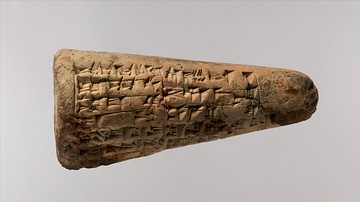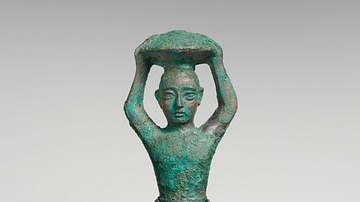Review

| Rating: | |
|---|---|
| Title: | In Praise of Polytheism |
| Author: | Maurizio Bettini & Douglas Grant Heise |
| Audience: | General Public |
| Difficulty: | Medium |
| Publisher: | University of California Press |
| Published: | 2023 |
| Pages: | 164 |
The author explores the reasons for the argument that polytheisms can talk to one another freely while monotheisms find it virtually impossible to have meaningful interreligious dialogues. Maurizio Bettini provides examples illustrating this view. This is a book that not only scholars but also the general public would find manageable.
Polytheism is superior to monotheism when exchanging religious convictions with others. This is what Maurizio Bettini argues in his brief and clearly written book of short while easily digestible chapters titled In Praise of Polytheism. Published in Italian in 2014 and now provided in English, the translator Douglas Grant Heise preserves Bettini's grace and precision. Bettini's main point is that the exclusive nature of the great monotheisms - Judaism, Christianity, and Islam - hinders fruitful discussions among them. Bettini is not advocating for some polytheistic worldview or religion; instead, he is concerned that monotheisms ignore the power of learning from one another that polytheisms enjoy.
In the ancient Western world, polytheistic religions were open to interreligious dialogues, accepting the gods of others by identifying them with one’s own gods. For example, the Greek Aphrodite was a counterpart of the Roman Venus. Different polytheistic religions would even add other deities to one’s own collection of gods, such as how the Etruscan god Vertumnus was honored in the heart of Rome. Bettini notes that, besides assimilation, the Senate of the Roman Empire could grant status to a foreign god - a kind of citizenship - that allowed temples, rites, and priests of the approved deity to be established in Rome. One can also think of Rome welcoming the religions of Isis of Egypt and Cybele of the Near East into its midst.
The monotheistic religions discussed in Bettini's historical analysis could not do this because each held that its religion was exclusively right while others were, at best, misguided or even false. A polytheist is willing to expand his or her knowledge of divine things. Even when monotheism is what Bettini calls “disguised polytheism” by recognizing angels, saints, and demons as part of the spiritual world, a monotheist remains exclusive and cannot admit anything from other religions.
In making his point, Bettini explores the way the language of religion - such as tolerance and interpretation - has changed in the passage from ancient polytheism into monotheism. For instance, there were laws that forbade demeaning or laughing at the unfamiliar gods of others precisely because they had been identified as gods by their worshipers. Monotheistic religions, in using the noun "God" as the title of God (including Allah, which literally means "the God") rather than a name like Zeus or Osiris, have relegated God to themselves and could be interpreted as that the deities of others cannot be called "god" at all. Once again, monotheism's exclusivity prevents meaningful interreligious dialogue.
The “praise” Bettini has for polytheism is its ability to have dialogues with other religions. Even without the religious assimilation that he finds in such exchanges, those following polytheistic faiths could learn and broaden their understanding of the divine without departing from their own traditions. Such an expansion of awareness is challenging to achieve in a monotheistic mind frame.
Bettini discusses religious rites and customs and gives wonderful examples of his arguments along the way. His focus is on the three great monotheistic religions and therefore centers on what we call “the Western world.” In doing so, he ignores Asian religions that are polytheistic (e.g., Hinduism) or admit multiple deities, like Buddhism. This is a self-imposed limit of this book that gives Bettini the space for his arguments with fewer distractions. Maurizio Bettini is an experienced scholar and is Professor of Classical Philology at the University of Siena, yet his writing maintains a light touch so that his points are easy to understand. While not having many images or pictures, this title has an extensive and helpful bibliography for the academic audience. This small book is excellent for high school and college students, enthusiasts of the history of religions, and anyone who is curious about interreligious dialogue and its difficulties. This book is highly recommended. One will find none better.
About the Reviewer
Cite This Work
APA Style
Hall, E. A. (2023, February 02). In Praise of Polytheism. World History Encyclopedia. Retrieved from https://www.worldhistory.org/review/278/in-praise-of-polytheism/
Chicago Style
Hall, Elton A.. "In Praise of Polytheism." World History Encyclopedia. Last modified February 02, 2023. https://www.worldhistory.org/review/278/in-praise-of-polytheism/.
MLA Style
Hall, Elton A.. "In Praise of Polytheism." World History Encyclopedia. World History Encyclopedia, 02 Feb 2023. Web. 01 Apr 2025.




